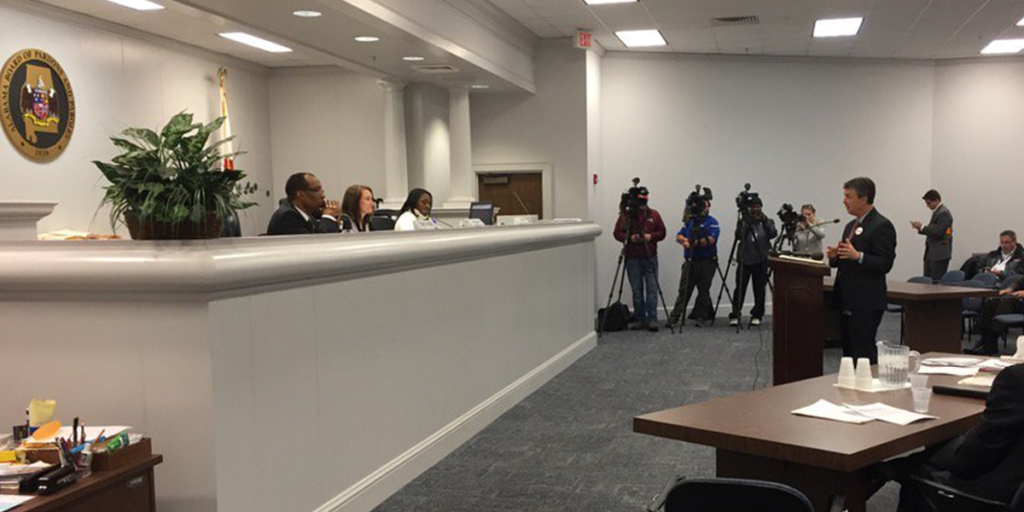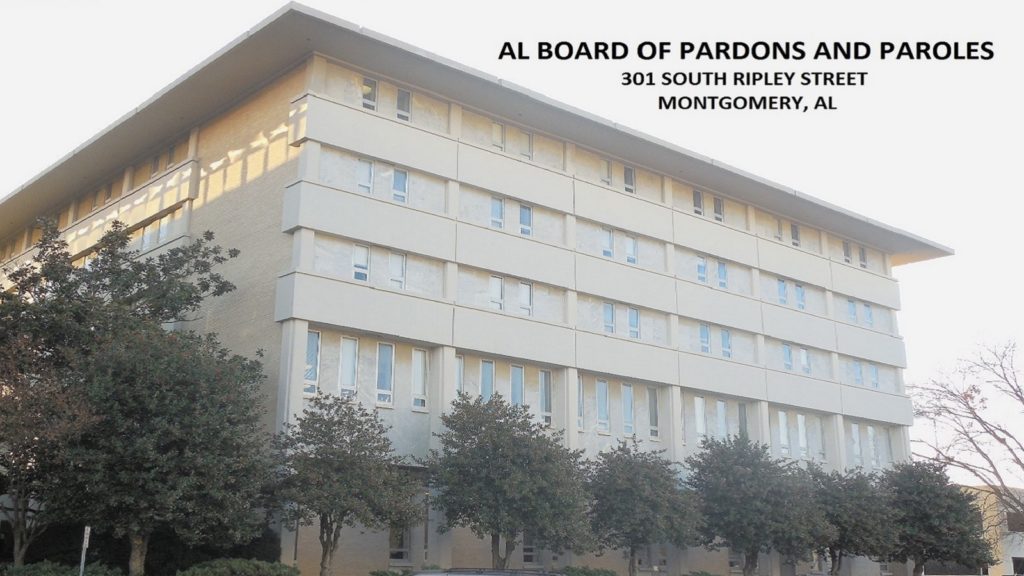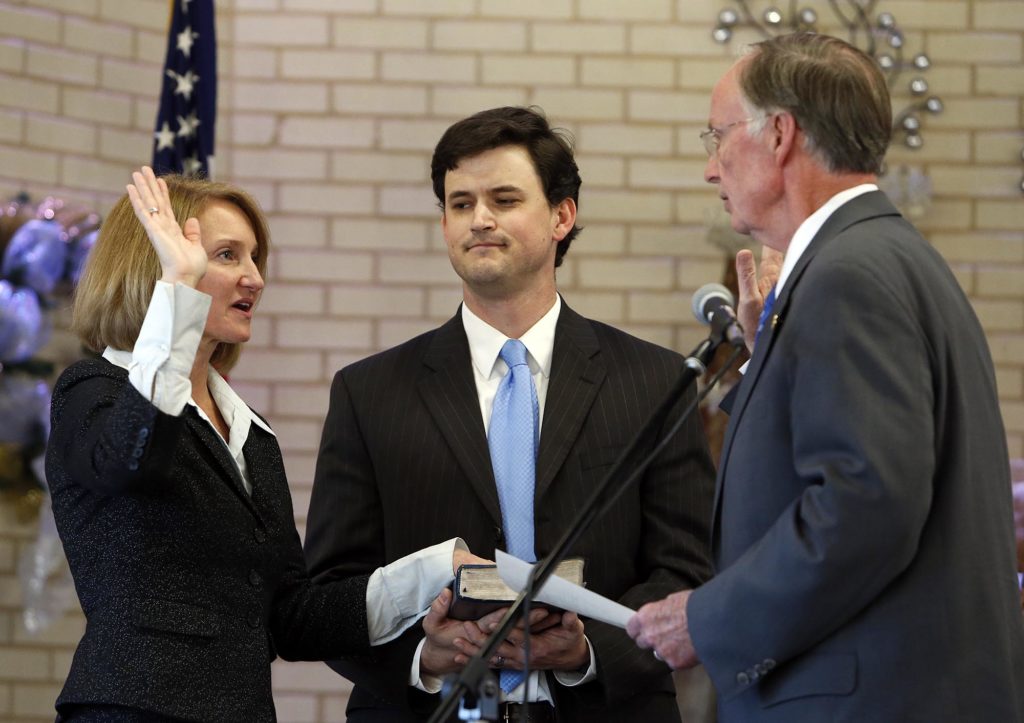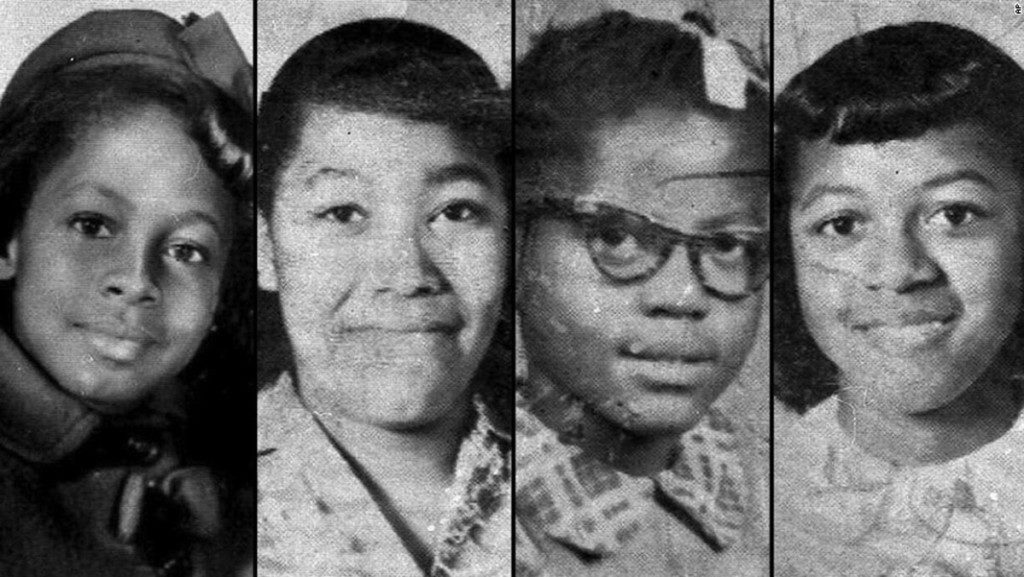Alabama Parole Board resumes hearings after 2-month pause

The board voted to deny parole to 20 out of 22 inmates it reviewed on Tuesday.
State to pay $1M for murders that lead to parole board overhaul

The state of Alabama will pay $1 million to three slaying victims’ families who contend that the man accused of killing them had wrongly been paroled, the state attorney general said Friday. The families of Colton Lee, Marie Martin and Martha Reliford allege that the Alabama Board of Pardons and Paroles should not have paroled Jimmy O’Neal Spencer and failed to properly supervise him once he was released. “No amount of money is enough to compensate these families for their losses,” Tommy James, the families’ lawyer, said in an interview. “I think going forward, now that this part is behind them, they can focus on the criminal trial of Spencer where obviously they’re hoping and praying for swift and severe justice.” The $1 million settlement is the maximum damages allowed under state law and will be divided among the three families. James said the current ceiling on compensation is a “shame” and the law should change to better protect victims. Spencer is accused of killing all three in Guntersville in July 2018. As WHNT reported, investigators say Martin was looking after her great-grandson, 7-year-old Colton Lee, at her home when she was strangled and stabbed. Colton was killed by blunt force trauma. Reliford, Martin’s neighbor, had been hit in the head with the back flat part of a hatchet and stabbed days earlier, investigators say. Spencer has been charged with capital murder in their deaths. Court records show his next appearance will be in September. A trial date hasn’t been set. Alabama Attorney Gen. Steve Marshall described Spencer as a “career criminal” in a news release Friday. Spencer initially entered prison in the 1980s, convicted and imprisoned for numerous serious property and violent crimes. He successfully escaped prison several times. On two separate occasions, Spencer was sentenced to life imprisonment. Despite his record, Spencer was granted parole in November 2017 and released the following January, Marshall said. He was supposed to remain in a Birmingham homeless shelter for six months but left after only three weeks. Marshall said Spencer traveled to Guntersville, where he had several run-ins with law enforcement, including resisting arrest, illegal possession of a firearm and possession of drug paraphernalia, though his parole was not revoked. Gov. Kay Ivey placed a 75-day moratorium on early paroles in October partially in response to the charges against Spencer. She also replaced the chair of the board of pardons and paroles and ordered the agency to produce a detailed, corrective action plan. Legislation working its way through the state legislature would give the governor the power to appoint the director of the parole board, as well as put into place sentence minimums that inmates must serve before becoming eligible for parole. If passed, inmates convicted of murder, rape or certain other crimes could not be considered for parole before they have served 85% of their sentence, or 15 years, whichever is less, according to the legislation. The proposal has received support from both Marshall and Ivey. “I am angry, certainly at Jimmy O’Neal Spencer, but I am also angry that a process designed to protect the public from deviant criminals like Spencer utterly failed them, as well as little Colton,” said Marshall, who recused himself from settlement negotiations because he knew two of the victims. This story has corrected the lawyer’s surname to James, not Jones. See Alabama Today’s previous articles on parole board. Lawmakers tackle Alabama parole board challenges, sentence minimums and Amid murders, many questions Kay Ivey makes parole board changes for more information. Republished with permission of the Associated Press.
Amid murders, many questions Kay Ivey makes parole board changes

This summer the Alabama Board of Pardons and Paroles made headlines for all the wrong reasons after they granted parole back in January to an inmate who was serving a life sentence. Months after being released, parolee Jimmy Spencer, is now accused of killing three people in Guntersville, Ala. The Parole Board’s decision led many to question their decision-making process as they have the power to override a judge’s decision and grant Alabama prisoners parole as they see fit. Which is why on Monday, after much public scrutiny and questions, Gov. Kay Ivey took action. She and Attorney General Steve Marshall met with members of the parole board where she removed Clifford (Cliff) Walker (who former-Gov. Robert Bentley appointed effective Nov. 2013) as Chairman and appointed Lyn Head (who Bentley appointed to the board effective Sept. 2016) to the lead board. Ivey decided to keep Dwayne Spurlock on the board, as she appointed him back in May, saying “he’s only been on duty like four months, so he’s still learning.” Each member of the board were subject to confirmation by the Alabama Senate and are serving a six year term. Ivey also announced that that she’s signed Executive Order 716, which puts a temporary moratorium on granting early paroles. She’s also asked the board to create and submit and corrective action plan within the next 30 days. Upon its submission, Ivey and Marshall will review and tweak the plan before giving the board a timeline for implementation. Importance of the Parole Board More than 20,000 people are locked up in Alabama prisons. According to the Alabama Department of Corrections (ADOC), state facilities are are at 160 percent of their intended occupancy as they’re collectively designed to hold only only 13,000 prisoners. While the State Legislature added an additional $85 million for the state prison system over the next two years — to address the prison’s mental health systems, following U.S. District Judge Myron Thompson‘s declaration that the state has failed to provide mental health care to the state’s prison population and is in violation of the Eighth Amendment’s prohibition on cruel and unusual punishment — lawmakers have yet to tackle fully he systemic problem of overcrowding. Enter the Alabama Pardon and Parole Board — part of the state’s answer to helping reduce prison overcrowding. Since the passage of the Justice Reinvestment Act (Act 2015-185) in 2015, the board has been tasked with implementing specific reforms targeted at reducing the prison population. According to the Board’s FY 2017 Annual Report, the Justice Reinvestment Act “requires a clear definition of the parole standard of release and establishment of actuarially based ‘parole guidelines,’ which include reasons for granting and denying parole. Reforms involving the Board’s paroling process achieve greater transparency for the public, crime victims, inmates, and system stakeholders regarding the process, itself, and factors guiding release decisions.”
Personnel note: Tuscaloosa Co. DA named to State Pardons and Paroles Board

Tuscaloosa County District Attorney Lyn Head has been appointed to the Alabama Board of Pardons and Paroles by Alabama Gov. Robert Bentley Friday. Bentley chose Head over four other candidates nominated by a committee to replace retiring board member William Wynne. She will join the three-member pardons board Sept. 6 and Bentley will appoint someone to fill the DA position by that time. Head has served as the DA since the governor appointed her in 2013. Head began her career as a prosecutor in 1997, when she filled an assistant district attorney position in the Bessemer Division of the Jefferson County District Attorney’s Office. In February of 1999, she became a deputy district attorney in the Tuscaloosa County District Attorney’s Office. Over the course of her career, Head has tried more than 200 cases, including capital murder, sexual assaults, abuse of children, robbery, drug crimes, and other felony offenses.
KKK member, 1963 Birmingham church bomber denied parole

The Alabama Board of Pardons and Paroles has denied parole to an 86-year-old Ku Klux Klansman convicted of killing four African-American girls more than 50 years ago. The decision to keep Thomas Edwin Blanton Jr, imprisoned was met with applause at the hearing in a Montgomery courthouse Wednesday morning. Blanton is the last surviving KKK member convicted in 2001 for the 1963 Ku Klux Klan bombing of the 16th Street Baptist Church that killed the girls, who were at Sunday services — Addie Mae Collins, Denise McNair, Carole Robertson and Cynthia Wesley — and that injured a fifth girl, Sarah Collins, the sister of Addie Mae Collins. Almost 30 years after the bombing, Blanton was sentenced to life imprisonment for planting a bomb outside the church during the height of the civil rights movement. His two accomplices, Robert Chambliss and Bobby Frank Cherry, were also convicted of murder and have since died behind bars. Across the country, civil rights activists opposed the parole, saying Blanton has served only 15 years of four life sentences. Attorney General Luther Strange was among those in Alabama who joined in the disapproval of the potential parole of Blanton. In a July 29 letter to the parole board, AG Strange stated, “Thomas Blanton was convicted of one of the most heinous crimes in Alabama history — the murder of four young girls who were attending Sunday school. The cold-blooded callousness of his hate crime is not diminished by the passage of time, nor is any punishment sufficient to expunge the evil he unleashed. Because he has never shown any remorse whatsoever for taking the lives of those innocent little girls, justice can only be served if Thomas Blanton spends the rest of his life in prison.” Wednesday’s justice is perhaps only temporary. Blanton can be considered for parole again in five years.


